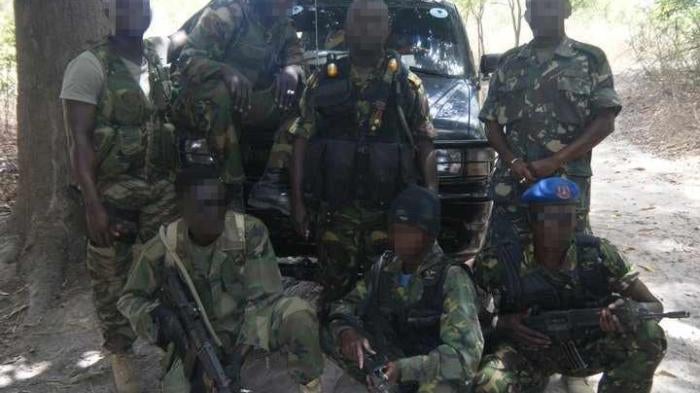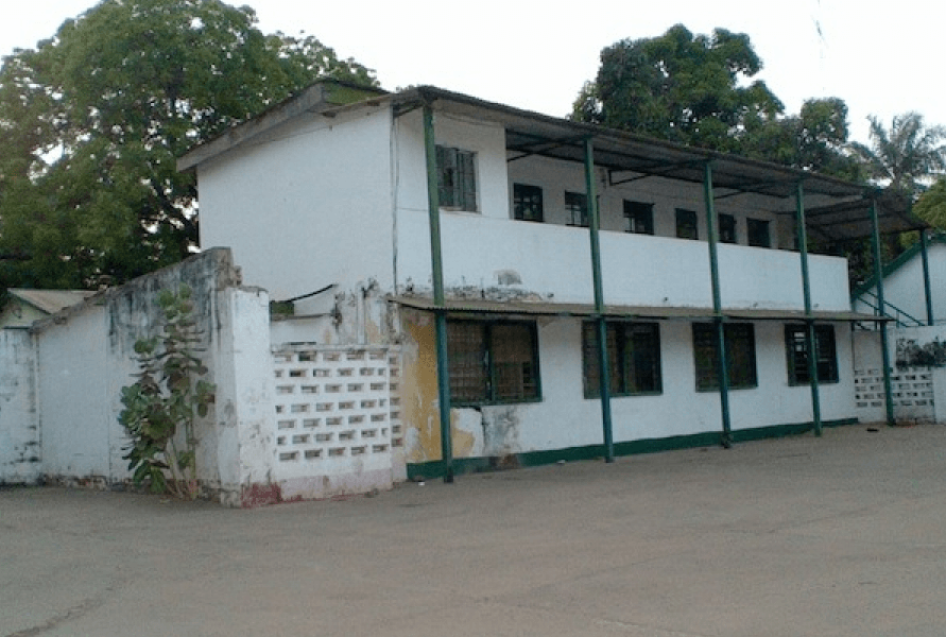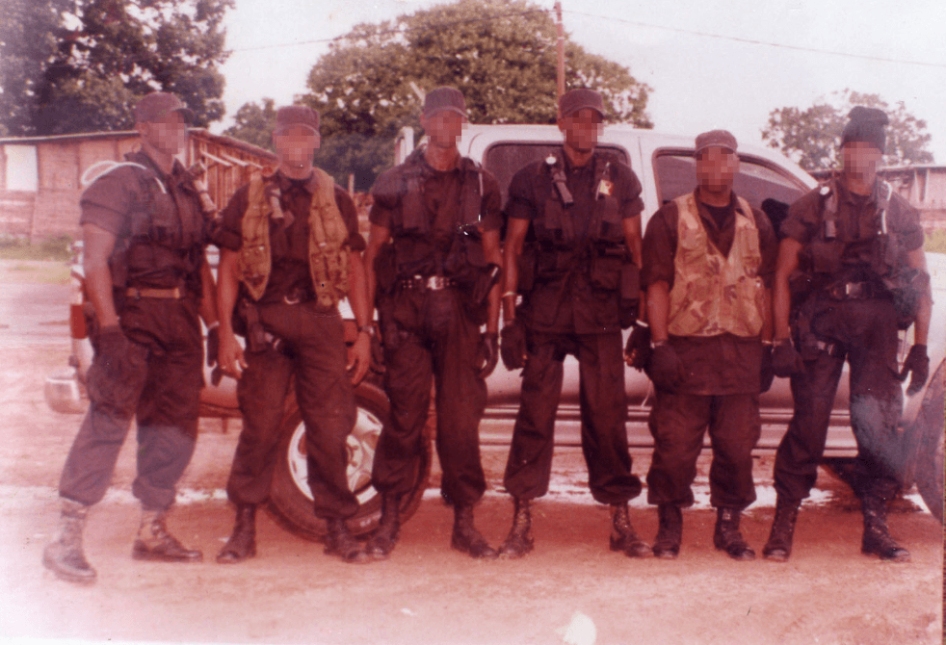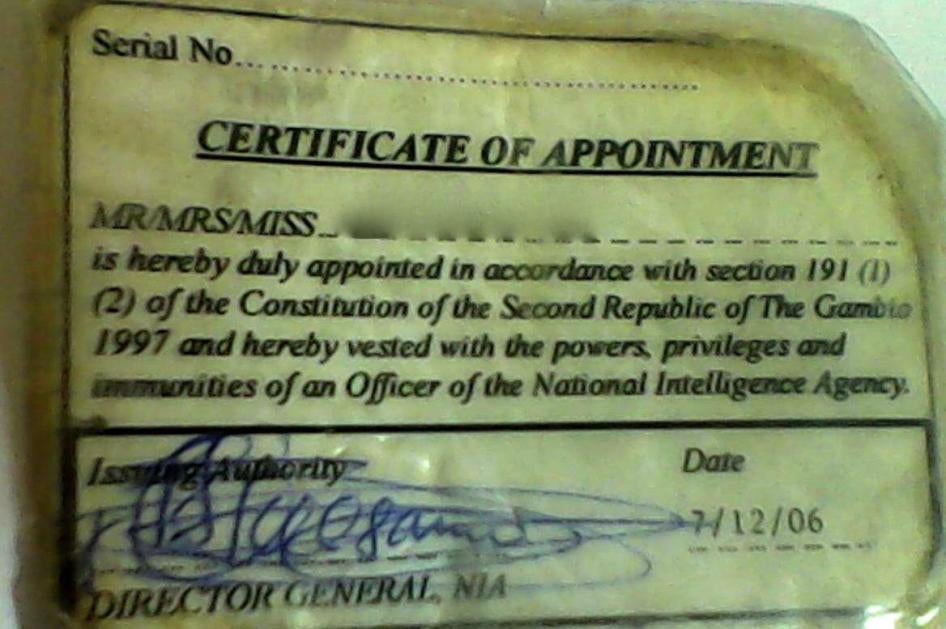Just past 10 p.m. one night in November 2012, Bakary was pushed into a cell deep inside the headquarters of Gambia’s dreaded National Intelligence Agency (NIA). The cell was so notorious it had its own name: bambadinka – “the crocodile hole.” There was almost no air in the tiny, mosquito-infested black space, and six thick padlocks made escape impossible.
Bambadinka was the very worst cell in the entire NIA complex – a fact which, as a senior intelligence official himself, Bakary knew only too well. “It was at this point that I started to think I might die,” he told Human Rights Watch.
Bakary’s journey from intelligence agent to suspected traitor to political refugee began when he was recruited by a family member as an informant, straight from high school. He rose up the ranks to become a senior figure in the NIA and only left more than a decade later, following brutality he witnessed in the aftermath of a 2006 coup attempt.
“I’d seen bad things before, but suddenly I was seeing real torture,” recalls Bakary (not his real name). “One woman was beaten so badly she wet herself in fear. I can still remember her screams.”
Bakary says that during his tenure at the NIA he witnessed arbitrary arrest, torture, and enforced disappearances. Beyond the small West African country’s scenic beaches that so enchant foreign tourists, the Gambian government is using its pervasive intelligence apparatus to terrorize and silence its own citizens, a new Human Rights Watch report finds.
“People are picked up one day and never seen again,” says Bakary. “Living in Gambia is like a constant trauma.”
Bakary was eventually released from his bambadinka cell to give this disturbing account of the inner workings of the NIA.
He is no doubt a complicated character. He claims that while he witnessed torture, he never personally carried it out. But the extent to which he took part in abuses is unclear. He made a career spying on others, only to fall under suspicion himself. And while he spent years working for the NIA, he only fled when the tables were turned.
He began as a detective in the political affairs unit, spying on businesses, opposition parties and nongovernmental organizations (NGOs). “We taped everything,” says Bakary. “We had small micro recorders hidden on our bodies that could run for hours and hours non-stop. We’d infiltrate political rallies, attend NGO workshops and just listen – everything would be recorded.”
In the run-up to elections in 2001, he recalls infiltrating the home of a key opposition leader and recording his conversations. As a result, a “red alert” was placed on the politician and anyone who visited him.
Bakary paints a picture of Gambia's intelligence agency as a tightly run organization. There are divisions to check other departments’ work, a strict order of hierarchy, and distinct units to collate, analyze, and distribute intelligence.
Warning bells first began to ring in 2004, when Bakary was briefly arrested by his own colleagues on suspicion of espionage, but he was released within hours and assured it had been a “simple mistake.”
In 2006 things took an alarming turn, when a former defense chief of staff launched a coup attempt. It was quickly repelled, but paranoia swept through the presidency. Bakary was appointed to head a panel to investigate the plot’s origins. With the help of three assistants, he analyzed intelligence reports gleaned during torture sessions.
“I quickly realized many of the people being brought in were complete innocents,” he says. “I saw everything that happened. My heart was in pain from what I saw.”
Bakary confirmed what torture victims we interviewed also told us – that torture is often carried out by the much-feared ‘Jungulers,’ or 'black-black'; an elite, paramilitary-style unit whose members dress in black and whose commander, according to many accounts, takes orders directly from the president.
The NIA is notorious for the abuse meted out, even on its own people. “My worst memory is seeing my family member, the very person who first recruited me, being tortured,” recalls Bakary. “They had a plastic bag over his head, and beat him and beat him to the point of death.”
Bakary says torture at NIA headquarters was done out in the open air, in a large, triangular-shaped courtyard. Offices, like Bakary’s, were on the first floor, and down below the dirty work would be done. “You can hear very clearly all the crying, all the wailing of the victims,” he says.
When asked if he ever looked out of the window during the screaming, he laughs: “Are you crazy? You have to ignore it! It’s not your business. If you start watching what they do to people, they’ll get suspicious of you, and then maybe you’ll be taken for torture. We didn’t even have the guts to tell our own wives or girlfriends what was going on.”
Bakary’s office served as a waiting room of sorts while interrogations were carried out elsewhere in the complex. He thinks many of the people who sat quietly in his office may have gone on to be tortured. “So many people were disappeared in that time – it was an absolute witch-hunt.” But he admits that, “If I knew people really were involved in the coup, my sympathy was limited.”
After the 2006 coup attempt, Bakary says he changed. “My desire had gone,” he says. “[The NIA] was becoming a rogue institution. It was lawless, and I was scared.”
Later, Bakary managed to engineer a temporary break from working at NIA headquarters, and studied for several years at Gambia’s main university. But even then, he was working for the intelligence services, feeding back information about corrupt officials or students who were planning protests.
By 2011, he reluctantly returned to the NIA base, and found it consumed by paranoia and lawlessness. He rose to a senior position, but within months, Jungulers arrived to arrest him at his desk.
“They took me to a secret location,” says Bakary. “They tied my legs and just started flogging me with iron cables. I recognized one of the men beating me – his nickname was ‘Rambo.’ He accused me of saying bad things about the president and said ‘We’re going to teach you a lesson.’”
It was from this beating that Bakary was transferred to bambadinka – “the crocodile hole.”
Eventually Bakary was released, his colleagues once again citing a dreadful “mistake,” but by this point, Bakary believed he had to flee or be killed. It took just over a year to plan his escape.
“My heart started dying working for that man,” says Bakary. “You can never question anything. Gambians are traumatized – people are scared of jail, scared of arrest, scared of being picked up and never seen again.”
Bakary himself admits his record isn’t clean. “I have to be honest – I was part of the system.” But this intelligence agent turned asylum seeker says he now wants to fight for change. “Whoever I have wronged, I’m sorry.”








